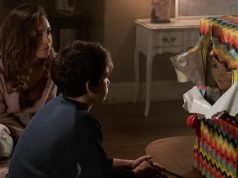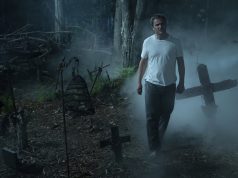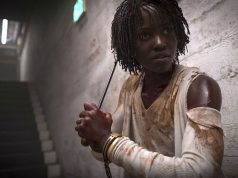The new remake of “The Last House on the Left” makes full use of the dramatically compelling scenario that Wes Craven used in his 1972 original: First some terrible things happen, and then someone gets revenge. There’s something admirable about a film that so effectively taps into a viewer’s primal instincts. You have to endure some gruesome stuff — but, then, the highs wouldn’t be nearly as satisfying if the lows weren’t so awful.
Craven (who’s onboard as producer) chose Dennis Iliadis to direct, on the basis of Iliadis’ 2004 bleak Greek prostitute drama “Hardcore.” He’s certainly got the bleakness thing down, and the screenplay — by first-timer Adam Alleca, with rewrites by Carl Ellsworth (“Red Eye,” “Disturbia”) — maintains the basics of Craven’s stark original. Not a lot of time for joking around or exploring characters’ psyches in a movie like this.
The film is neatly divided into two halves. In the first, teenager Mari (Sara Paxton) arrives at her family’s lakeside summer house with her parents, Emma (Monica Potter) and John (Tony Goldwyn), then goes into town to meet up with her friend Paige (Martha MacIsaac). Due to peer pressure, Mari smokes pot with Paige and some drifter named Justin (Spencer Treat Clark) back at Justin’s hotel room, which it turns out he shares with his father, Krug (Garret Dillahunt), Uncle Frank (Aaron Paul), and Krug’s skanky girlfriend Sadie (Riki Lindhome).
The problem with this is that Krug is a convict who just escaped from police custody, and the gang has been committing acts of murder and mayhem across the countryside. They didn’t want young Justin bringing home friends, and so now Mari and Paige are in trouble. This is why you should say no to drugs, kids. At the very least, you should say no to visiting hotel rooms with strangers who want to sell you weed.
After some dreadful things happen to Paige and Mari, the bad guys go on the run and, in a cosmic coincidence, wind up at Mari’s house seeking refuge from a rainstorm. Mari’s parents don’t know anything has happened to her, and they offer shelter to the strangers. As an audience, we intuit that John and Emma will realize whom they’ve taken in, and that justice will be served. The film’s second half, we gather, will be about revenge.
It’s about self-preservation, too (Krug and the gang pose a threat to John and Emma, too, after all), which makes it somewhat less seedy than a straight-out revenge flick would be. The story moves efficiently — perhaps a bit mechanically — and maintains an appropriate pace, speeding up and slowing down as necessary to increase the tension.
There is something a little rote about it, though, which may be inevitable in a story as lean as this one. We enjoy the comfort of knowing basically how it’s going to wind up, yet we wish there were more surprises along the way. Is it reasonable to want both? To want familiarity and originality?
“The Last House on the Left” is well made for its genre, and certainly better than the toothless thrillers and soulless torture flicks that have been the norm lately. Maybe it’s as good as it could be, given its inherent nastiness and structural simplicity. All I know is, for a doctor, Mari’s dad sure doesn’t adhere to that “first, do no harm” rule.
B- (1 hr., 46 min.; )





